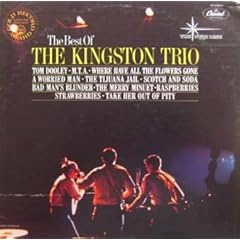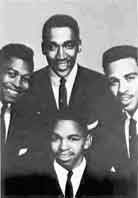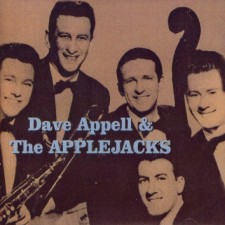
I can’t say that Conway Twitty played a huge role in my life; I only really remember two of his songs: the sex one (bom bom bom), and the other sex one (with your hair up in curlers I’d still love to…)
The early stuff he recorded, the stuff on MGM, I got on a
Greatest Hits album that came from Pyramid Records, and the later stuff came from
The Very Best Of Conway Twitty, and I picked that up on a cassette at Sam The Record Man.
Hey, have I ever written about Sam The Record Man?
Conway Twitty:
•
It’s Only Make Believe – For all his salacious success in the 70s, this, his first hit, unabashedly romantic, was his biggest. The first time I heard it wasn’t by Conway Twitty, it was Glen Campbell’s string-laden recording that was a hit in the fall of 1970. From the fall of 1958.
•
Danny Boy – Conway rocks it up, irreverent in the extreme. His fans loved it; it was a top 10 hit in the winter of 1959 / 1960. It was the highest charting version, competing with 5 others, from Andy Williams to Jackie Wilson.
•
Heavenly – This wasn’t the first time a woman would be associated with paradise, and it wouldn’t be the last.
•
I’ll Try – An odd name for a love song, but realistic. The may be the most Elvis-like of all his early tracks.
•
Lonely Boy Blue – More Elvis soundalike stuff, in this case down to the message. This was a top 10 hit in the winter of 1960.
•
Halfway To Heaven – Wow, the bells are actually ringing. This is a common theme also, think Halfway To Paradise by Tony Orlando or Billy Fury.
•
Is A Blue Bird Blue – Do I love you? Is a blue bird blue? A blue bird, is that the same as a bluebird? This was a hit in the summer of 1960.
•
The Hurt In My Heart – Originally The Hurt In My Foot, but then someone had an idea…
•
Mona Lisa – A rocked up version. The original was by Nat King Cole. Carl Mann also did a rocked up version, but I don’t have that one.
•
The Story Of My Love – The story of my life is the story of my love, and the story of my love is the story of my life. A song about unhealthy reality. Didn’t Marty Robbins do this? From the winter of 1959.
•
What Am I Living For – A hit for Chuck Willis. And more of the same. I’m living only for you. Erich Fromm didn’t think much of songs like this. Also covered by Jack Scott. Twitty’s version was a hit in the spring of 1960.
•
She’s Mine – Of course she is. Whose else would she be. She’s mine was the b side of Is A Blue Bird Blue, and it snuck into the top 100 for one week in August of 1960.
•
Hello Darlin’ – And so begins part 2 of Conway Twitty’s illustrious career, this time as a country idol, with his first hit since 1962’s Portrait Of A Fool, which wasn’t much of a hit. The whole time he was obsessed by the girl in the song, which seems to be a problem of his. Keep listening. This was from the summer of 1970. Hello Conway…
•
Fifteen Years Ago – See what I mean? 15 years later he is still obsessing. From the fall of 1970.
•
I Can’t See Me Without You – Alright, a breakup song. Let’s give him this one. There’s truth in it, for many. That’s about the trauma that happens when the breakup first happens, the unexpected, the void one faces before one has the opportunity to work things through. But we survive, don’t we… From 1972
•
(Lost Her Love) On Our Last Date – This is Last Date, updated. The way he sings it, it’s tragic. From 1972. An earlier hit for Skeeter Davis and for Floyd Cramer.
•
Baby’s Gone – And he lived to tell… From 1973.
•
You’ve Never Been This Far Before – The song that put Conway Twitty on the map for so many, me included. It’s meant to be adult, mature, real. In the end it’s really just salacious. From the fall of 1973. I was in grade 11. And as big a hit as it was, it only reached number 22 on Billboard. It’s the only one of Conway Twitty’s songs that I remember hearing on the radio.
•
I’m Not Through Lovin’ You Yet – A song of a failing relationship, and the refusal to give up, to let go. I just need some time, he sings, to make the plans that we made come true. One of his better ones. From 1974.
•
(Lying Here With) Linda On My Mind – A hit from the spring of 1975. A cheating song. Everything is always reduced to the lowest common denominator in country songs. The first girl I ever danced with was a girl named Linda.
•
There’s A Honky Tonk Angel – With a salute to Hank Thomson. A song of a dead relationship. The kind of stuff you say in songs that you could never say in real life. From 1974.
•
I Can’t Believe She Gives It All To Me – Get your mind out of the gutter … well it’s that too. But overall it’s about love, about life. And you know, it’s the other side, and it’s real. From 1976.
•
I See The Want-To In Your Eyes – Well we know what this is about, don’t we. She marries. Say no more.
•
Don’t Cry Joni – The story of a May – December romance that ended sadly. The Joni in the song, the one singing, is his daughter.
•
Georgia Keeps Pulling On My Ring – Another one of those songs. Jim Croce also sang about Georgia (Walkin’ Back To Georgia) but I think that Hoagy Carmichael was writing about the state.
•
I’ve Already Loved You In My Mind – Not the smoothest pick-up line in the world, but

that’s what this is about.
•
Don’t Take It Away – Routine stuff – I screwed up, I’m sorry, etc, etc.
•
I May Never Get To Heaven – Brings into a light countrypolitan song the entire philosophical questions of how doing something that seems so wrong feels so right.
•
I’d Love To Lay You Down – I remember this from my cab driving days; I’d spend a week now and then listening to the local country station (CKRC then). That would have been 1979.. The song bridges the gap between the quick pick up line and a life-long love.
•
Rest Your Love On Me – A song about overcoming emotional resistance. Don’t we all know it…
•
Tight Fittin’ Jeans – Here he is singing about appearances and reality. I can see right through your tight fittin’ jeans, he says, in one of the best double meanings in all of country music.
•
Red Neckin’ Love Makin’ Night – Conway rocks out, country style. And how many got the red neckin’ pun. From 1981.
 Billy Grammer had a handful of hits on the country charts over a 10 year period; he had 2 records, 3 songs, on the pop charts, all in 1959. He got all manner of honours, country music hall of fame, Grand Ole Opry and the like, but who’s heard of him?
Billy Grammer had a handful of hits on the country charts over a 10 year period; he had 2 records, 3 songs, on the pop charts, all in 1959. He got all manner of honours, country music hall of fame, Grand Ole Opry and the like, but who’s heard of him? Now this is what we record-crazy people live for. Funny thing is that I don’t even remember where I found this single, probably at the Sound Exchange. They overpriced their stuff, but even so, I didn’t pay $170 for this, which is what the only copy available on Amazon is listed for at this moment.
Now this is what we record-crazy people live for. Funny thing is that I don’t even remember where I found this single, probably at the Sound Exchange. They overpriced their stuff, but even so, I didn’t pay $170 for this, which is what the only copy available on Amazon is listed for at this moment. I hear The Kingston Trio and I hear authentic folk music, acoustic guitar (Martins, no doubt), banjo, pure harmonies. No strings (well, later, ok), no electric piano, no piano at all, no saccharine.
I hear The Kingston Trio and I hear authentic folk music, acoustic guitar (Martins, no doubt), banjo, pure harmonies. No strings (well, later, ok), no electric piano, no piano at all, no saccharine. I got this LP, it was called The Best Of Sellers, and it wasn’t in very good shape. No man. It was a true artifact of the age of vinyl, so scratched you could not hear the recording. I stuck it in though, most of it, between Conway Twitty and The Kingston Trio, and there it sits.
I got this LP, it was called The Best Of Sellers, and it wasn’t in very good shape. No man. It was a true artifact of the age of vinyl, so scratched you could not hear the recording. I stuck it in though, most of it, between Conway Twitty and The Kingston Trio, and there it sits. I can’t say that Conway Twitty played a huge role in my life; I only really remember two of his songs: the sex one (bom bom bom), and the other sex one (with your hair up in curlers I’d still love to…)
I can’t say that Conway Twitty played a huge role in my life; I only really remember two of his songs: the sex one (bom bom bom), and the other sex one (with your hair up in curlers I’d still love to…) that’s what this is about.
that’s what this is about. See how things get screwed up. We saw Georgia Gibbs as early as 1955. And here we are in 1958.
See how things get screwed up. We saw Georgia Gibbs as early as 1955. And here we are in 1958. Another group that I didn’t have for a long time. Their one hit I got from the Doo Wop Box.
Another group that I didn’t have for a long time. Their one hit I got from the Doo Wop Box. Earl Grant shows up on page 180 of The Rock Almanac, his song listed as The End, and when I saw that, the only song I knew called The End was by The Beatles, but I knew that this couldn’t be it, and I was right. That was his only top 40 hit – it’s actually called (At) The End (Of A Rainbow), though all the books I have list it just as The End. In the end (haha) he had 6 songs reach the top 100, five on this collection, which is pretty old. It’s called Earl Grant’s Greatest Hits.
Earl Grant shows up on page 180 of The Rock Almanac, his song listed as The End, and when I saw that, the only song I knew called The End was by The Beatles, but I knew that this couldn’t be it, and I was right. That was his only top 40 hit – it’s actually called (At) The End (Of A Rainbow), though all the books I have list it just as The End. In the end (haha) he had 6 songs reach the top 100, five on this collection, which is pretty old. It’s called Earl Grant’s Greatest Hits. A collection of hits I got from Pyramid Records. You could get anything at Pyramid Records. It was amazing.
A collection of hits I got from Pyramid Records. You could get anything at Pyramid Records. It was amazing.

